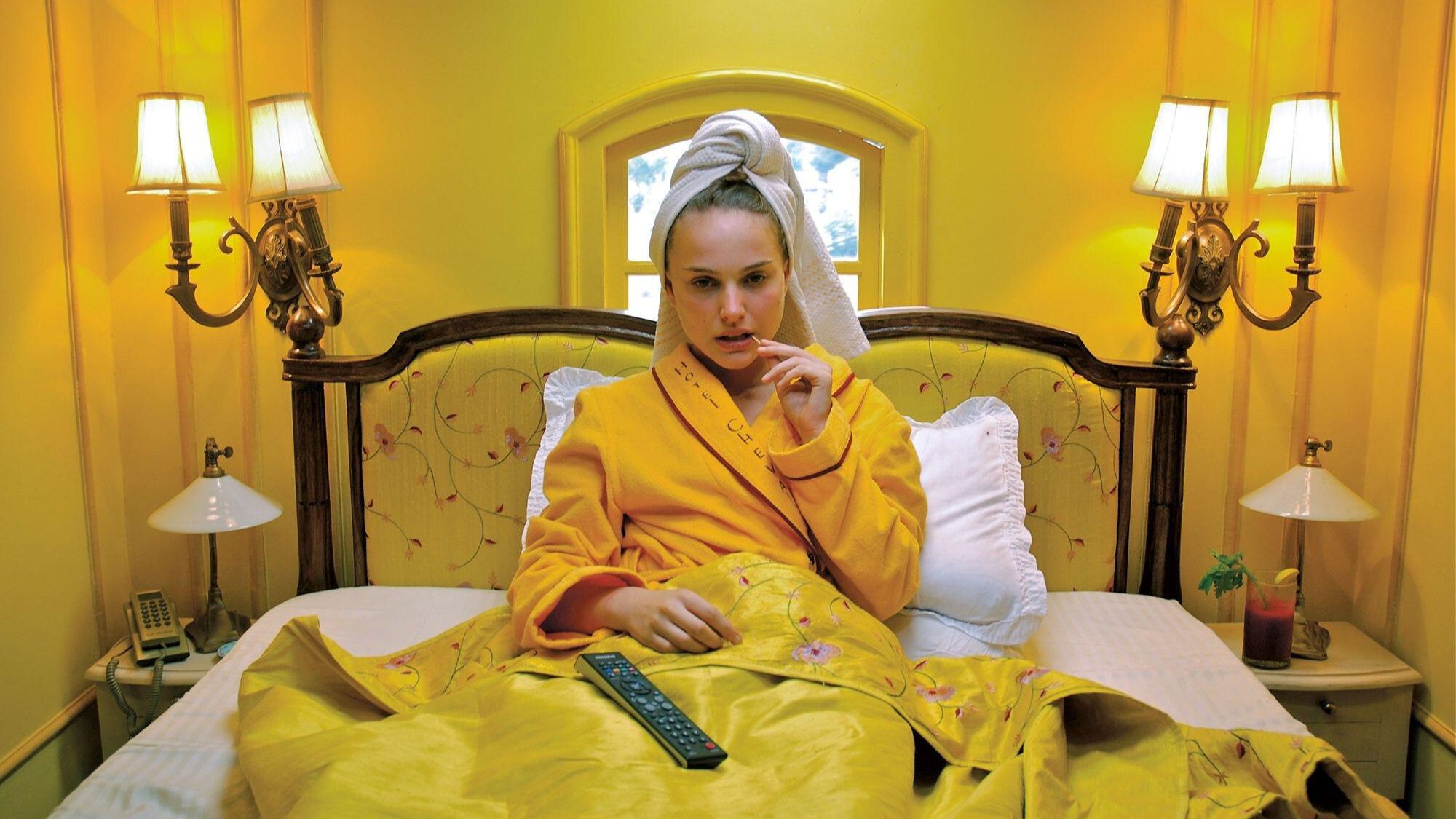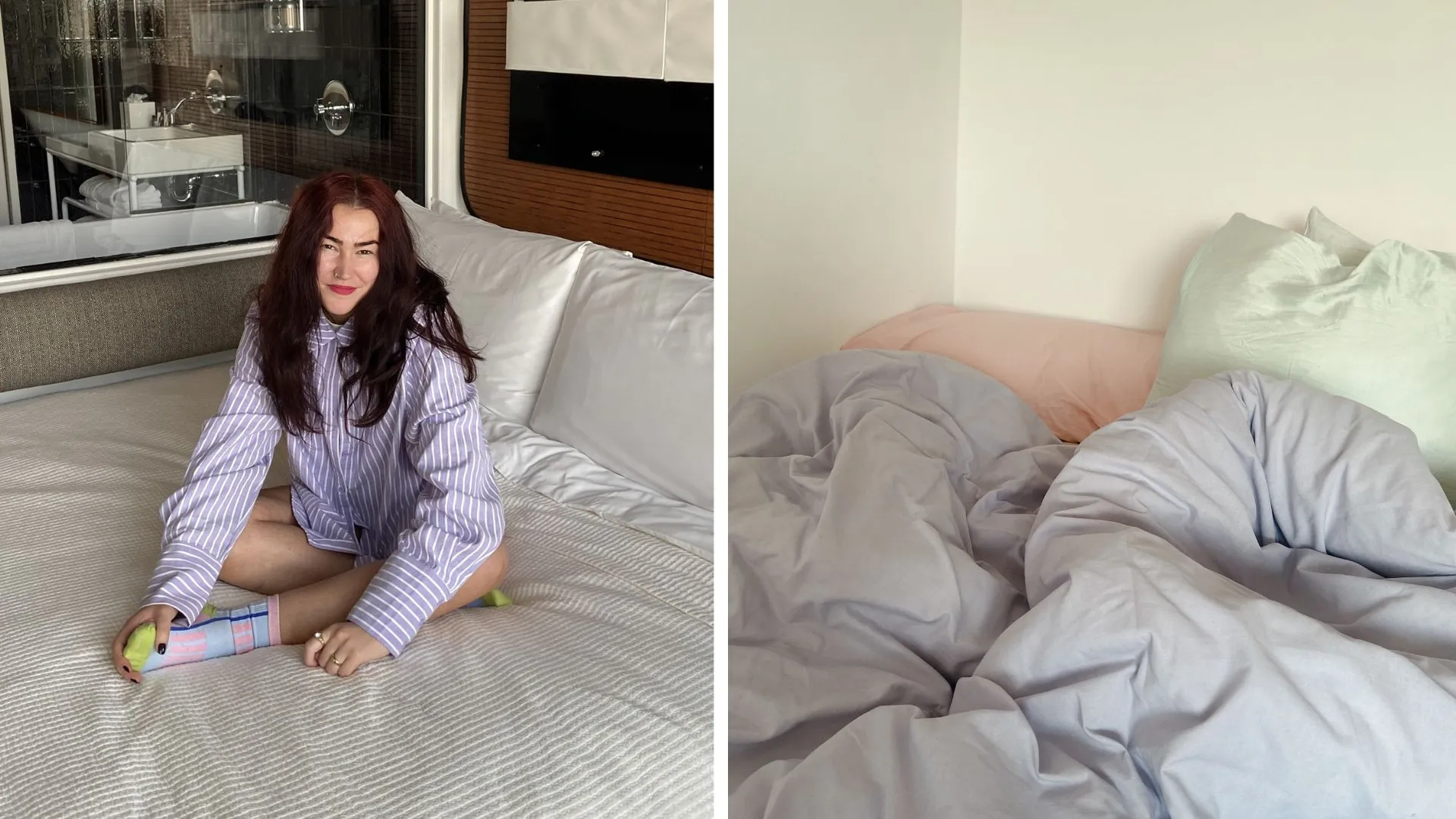Sleep Divorces Are Trending — Is Modern Life Making Us Too Tired to Be Together?
Peeling back the covers on TikTok’s solo sleeping obsession and what it says about intimacy in the age of burnout.


Once the preserve of couples on the rocks or the over 70s, sleeping in separate beds is having an online renaissance. Sleep divorces are trending again, pushed by everyone from Victoria Beckham to reality star Ferne McCann, and, of course, TikTok. But is there more to this than a trend?
Like most chronically online people, life hacks and health advice tend to come to me in the form of 30-second TikToks, which is how it came to be that I began laying my lifelong (of at least, 15+ years) insomnia on my boyfriend (of nine years).
TikTok has turned sleep divorces from a retro sitcom quirk to a #wellnesswin. One viral video espousing the benefits of sleeping sans spouse has over 2.5 million views. Some of the top videos about sleep compatibility (another new internet obsession) on Sleeptok—the platform's dedicated space for all things shut-eye-related—have upwards of 2.2 million likes. Google searches for “sleep + divorce” spiked by 478% this week. Clearly, we're all looking to enhance our eight hours.
The science behind the shift is fairly straightforward: we humans are bad at co-sleeping. Our partners snore, toss, turn, steal the covers (guilty), wake early, or stay up late. Add in children, pets, phones, and the ever-lingering stress of modern life and what should be a sanctuary becomes a battleground of bad sleep cycles.
“Poor sleep significantly impacts our well-being,” says sleep expert Martin Seeley of MattressNextDay, adding that it raises irritability and frustration, and has long-term links to anxiety and depression.

The cultural drivers behind the shift are harder to pin down. Sure, there’s something to be said about younger generations eschewing tradition: millennials are leaving the workforce in droves, forgoing marriage and delaying—or putting off altogether—parenthood. But from my millennial vantage point, I see sleep divorces are one more sign that the demands of modern life are making intimacy unsustainable.
I don’t think it’s a coincidence that sleep divorces are booming alongside burnout, rising childcare costs, housing unaffordability, and job precarity. We’re all overstimulated, underslept, and desperate to take control of something at a time of growing instability. We’re not sleeping separately because we’ve suddenly become enlightened about circadian rhythms. We’re sleeping separately because we’re exhausted—by work, by screens, by crumbling social security—and carving out sleep as one last vestige of control.
Celebrity news, beauty, fashion advice, and fascinating features, delivered straight to your inbox!
Abandonment issues aside, I recoil at solo sleeping because I disagree that sleep, that most basic of human functions, is something that should be endlessly optimised. I feel the same way about sleep trackers and while I’m not immune to the pull of sleep aids (give me a sunrise alarm clock and some Lush Sleepy Lotion any day), I like to tell myself I enjoy the aesthetics and ritual of sleep routines. Of course, the reality is that my intermittent insomnia has never been because I ran out of lavender spray or let my Headspace membership lapse. Sleeplessness has always been fuelled by outside forces and I draw the line at letting those forces kick me out of my own bed, damn it.
Perhaps I’d feel differently if I weren’t the problem sleeper, perhaps my partner does feel differently, but as it is, he sleeps soundly despite my relentless tossing and turning and passive-aggressive pillow fluffing. And yet, the pressure to get sleep “right” is everywhere. Couples are investing in bespoke sleep environments: blackout curtains, ambient lighting, temperature-controlled mattresses. As an insomniac, the idea of turning our sleep spaces into little self-care sanctuaries pleases me—in theory. In reality, for much of the week, either my partner or I work in the bedroom. Beholden to the London rental market as we are, the concept of turning the bedroom into a ‘digital detox zone’—as has been suggested to me by various GPs during bouts of sleeplessness—is essentially just a nice idea, like retiring at 50 or the “dual master suites” being designed to cater to the growing market of high-net-worth sleep separatists. And while I’ve always longed to live in a home with twin bathrooms, when it comes to separate bedrooms, I can’t help but feel that sleep divorces are just another way that the pressures of modern life are driving us further apart. Separate bedrooms offer a seductive illusion of peace, but what we really need is societal change: flexible work policies, more support for families, fewer screens, more community.

Mischa Anouk Smith is the News and Features Editor of Marie Claire UK.
From personal essays to purpose-driven stories, reported studies, and interviews with celebrities like Rosie Huntington-Whiteley and designers including Dries Van Noten, Mischa has been featured in publications such as Refinery29, Stylist and Dazed. Her work explores what it means to be a woman today and sits at the intersection of culture and style. In the spirit of eclecticism, she has also written about NFTs, mental health and the rise of AI bands.